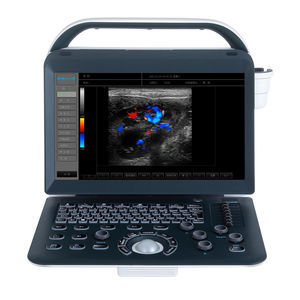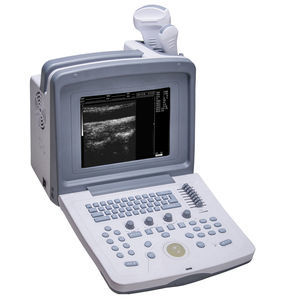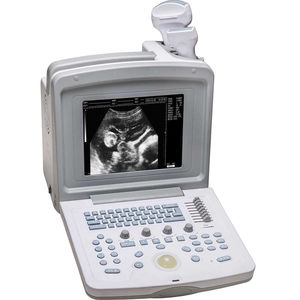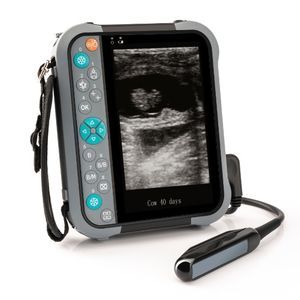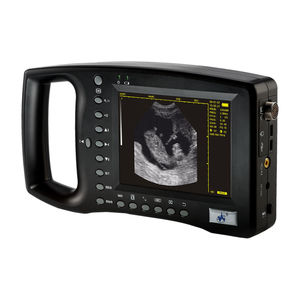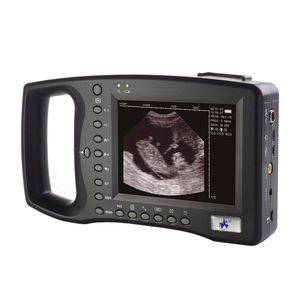
- Livestock Farming
- Veterinary medicine
- Portable Doppler veterinary ultrasound system
- Shenzhen Well.D Medical Electronics

- Products
- Catalogs
- News & Trends
- Exhibitions
Portable Doppler veterinary ultrasound system FDC6000Vfor dogsfor catsfor cattle
Add to favorites
Compare this product
Characteristics
- Ergonomics
- portable
- Type of animal
- for dogs, for cats, for cattle, horse, for sheep
- Scanning method
- linear, convex array, microconvex array
- Applications
- for abdominal imaging, for cardiac imaging
- Other characteristics
- with real time viewing (RTV), full-color
Description
Vet Color Doppler Ultrasound Diagnostic System
Clinical application
For clinical diagnosis of horses, cattle, sheep, pigs, cats, dogs and other animals
Ultrasound Imaging Technology
1. World-advanced ultrasound platform and architecture
An 8-core DSP processor and a front-end ultrasound chip with the latest generation of "digital demodulator" is adopted, providing powerful computing capability, high integration, low power consumption as well as seamless upgrade which supports elastography.
2. Sparse transmit & multi-beam parallel processing technology
Plane-wave transmitting as well as 16-beam parallel receiving and processing improve the frame rate of image and blood sensitivity in B + C and B + C + D modes, achieving triplex display.
3. Pulse inversion harmonic imaging technology
Superior to traditional tissue harmonic imaging technology, pulse inversion harmonic imaging technology is applied to suppress side lobes and improve contrast resolution of the tissue with counteracted fundamental and enhanced harmonic.
4. Synthetic aperture beam-forming technology
Break of restrictions traditional DAS beam-forming algorithm has on the number of physical channels generates excellent images both in near field and in far field with smaller hardware and lower transmit power.
5. A continuous transmit focus at every pixel
· The distance differences of transmitting sound waves and those of receiving sound waves are calculated simultaneously, resulting to higher imaging precision and accuracy.
· Diagnostic differences caused by differentiation of operators are lessened with no focus displayed and no need of manual adjustments.
Other Shenzhen Well.D Medical Electronics products
Vet Ultrasound
Related Searches
- Ultrasound scanner
- Portable ultrasound scanner
- Large animal ultrasound scanner
- Battery powered ultrasound scanner
- Linear ultrasound scanner
- Small animal ultrasound scanner
- Abdominal imaging ultrasound scanner
- Doppler veterinary ultrasound system
- Portable Doppler veterinary ultrasound system
- Battery powered Doppler veterinary ultrasound system
- Convex array ultrasound scanner
- Linear Doppler veterinary ultrasound system
- Small animal Doppler veterinary ultrasound system
- Abdominal imaging Doppler veterinary ultrasound system
- Full-color Doppler veterinary ultrasound system
- Cardiac imaging ultrasound scanner
- Large animal Doppler veterinary ultrasound system
- Pet Doppler veterinary ultrasound system
- Convex array Doppler veterinary ultrasound system
- Cardiac imaging Doppler veterinary ultrasound system
*Prices are pre-tax. They exclude delivery charges and customs duties and do not include additional charges for installation or activation options. Prices are indicative only and may vary by country, with changes to the cost of raw materials and exchange rates.



